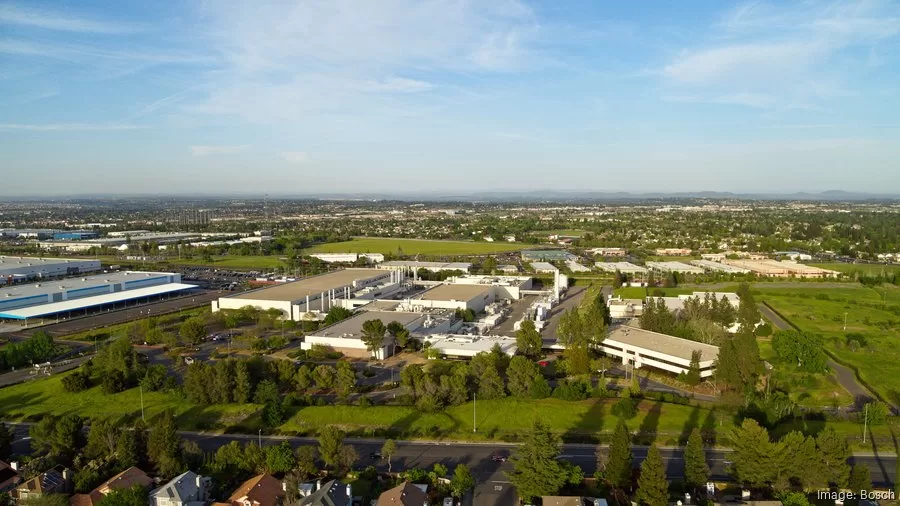Bosch, a German-based engineering company, is developing a semiconductor manufacturing plant in Roseville, California. The company has secured up to $225 million in direct funding under the CHIPS Act to support the project, which brings the facility’s value to $1.9 billion. Rather than building a new factory from scratch, Bosch is upgrading its existing plant to produce advanced silicon carbide semiconductors designed for electric vehicles and charging systems, with production expected to begin in 2026.
The investment aligned at the time with the Biden administration’s broader strategy to strengthen domestic semiconductor manufacturing. As part of the transition, Bosch retained nearly all 250 employees from TSI Semiconductors, the plant’s previous operator, and provided them with training through its global manufacturing network.
On 1st September 2025 Samsung Electronics announced the resumption of the construction on its massive semiconductor plant in Taylor, Texas, backed by a fresh $4 billion investment supporting a trend that is seeing the development of semi conductor plants in the country.
CHIPS Act
Reported on 13th December 2024 – Rep. Doris Matsui pointed out the impact of CHIPS Act, the law which she called as a critical tool to build a strong and sustainable semiconductor ecosystem. Paul Thomas, the CEO of Bosch in North America said that the domestic production of silicon carbide semiconductors will help U. S consumers in their journey toward electrification, and this Bosch’s plant in Roseville is right move toward this goals.
Thorsten Scheer, the plant manager pointed out that the company opted to expand an existing wafer fabrication facility rather than construct a new one. He pointed out the talented Roseville workforce as one of the reasons for this approach, saying that the workforce was skilled and committed during the transformation of the site.
Read also: GlobalFoundries Secures $1.5 Billion Award from CHIPS Act for 3 Projects in NY and VT
Read also: Amkor plans to build $2B semiconductor packaging and testing facility in Peoria, AZ
Bosch Semiconductor Manufacturing Plant in Roseville: Project Factsheet
Project Overview
Location: Roseville, California
Total Investment: $1.9 billion
CHIPS Act Funding: Up to $225 million
Expected First Production: 2026
Project Specifications
Facility Type: Renovated semiconductor manufacturing plant
Chip Type: Silicon carbide chips
Wafer Size: 200-millimeter
Primary Applications: Electric vehicles, charging systems, power electronics
Read also: New York teams up with IBM, Micron for $10B semiconductor facility at Albany University
Key Stakeholders
Company: Bosch (Stuttgart, Germany)
Local Workforce: 250 retained employees
Construction Partner: Sacramento-Sierra’s Building and Construction Trades Council
Bosch Roseville semiconductor manufacturing plant: Milestones
April 2023: Initial investment announcement
2024: Ongoing facility renovation
2026: Projected first chip production
CHIPS Act funding for Bosch Roseville plant: Strategic Objectives
Strengthen U.S. domestic semiconductor manufacturing
Support electrification of transportation
Develop local high-tech manufacturing capabilities
Economic Impact
Job retention and advanced training
Local infrastructure investment
Support for U.S. technology supply chain
Read also: US National Semiconductor Technology Center finds home in California with first-of-its-kind facility
Read also: Wolfspeed’s $5 billion Silicon Carbide Factory in North Carolina

Leave a Reply